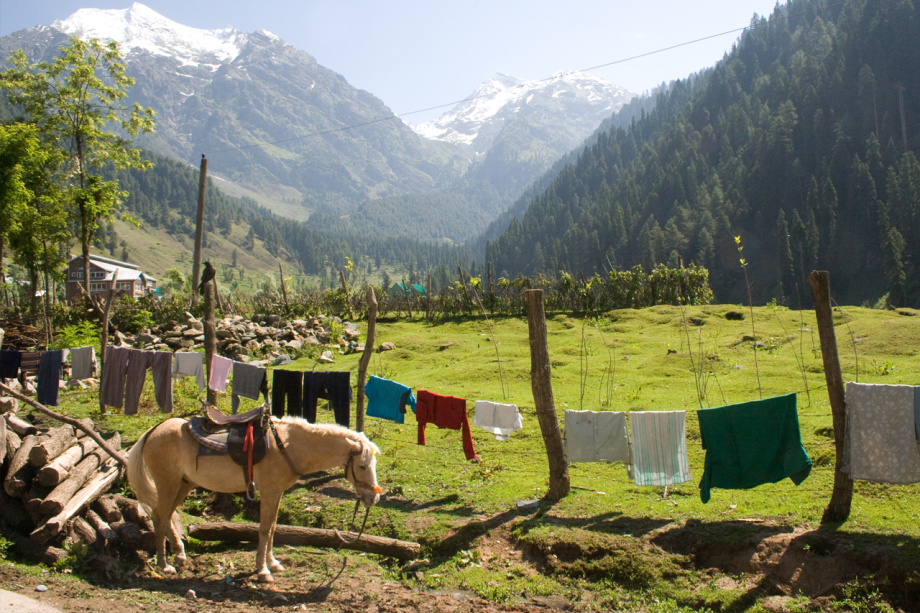How do Frontiers workers go about learning language? Many workers live in remote locations or study obscure dialects for which there are no language schools and curricula—and sometimes not even a written alphabet.
In this three-part series, you’ll discover what language learning looks like for a few of our field workers.
“This is a horse, and this is a spider,” I said, pointing to pictures in a book. With my best toddler-like language, I asked my young friends, “What’s the difference between a horse and a spider?”
“A horse is big and a spider is small,” said one little girl.
It’s probably hard for you to imagine what it’s like living in a mountain village in India. What do we do on a typical day?
We’ve been here almost a year now, long enough to have a routine that is fairly established. Our day starts with chores, coffee, breakfast, Scripture reading, and prayer time. Language study takes up the rest of the morning.
Our landlord’s daughter, Minou, is our language helper. She comes up the stairs and we meet around the kitchen table. Right now we are working on telling stories from pictures, which helps us learn to use past and future tenses. We record our lessons and spend time reviewing them after lunch, making note of phrases we didn’t understand so that we can go over them the next day with Minou.
The rest of the afternoon we head out to our neighbors, taking our language pictures and recordings with us. At first we were quite a comical and mystifying novelty to our neighbors. But by now most of them are used to the fact that we want to practice with them, and that a hot cup of their home-brewed chai helps with our fluency!
It was a few days ago, while visiting a friend who had her grandchildren with her, that I pulled out some pictures and asked for help with my animal vocabulary. I pointed to the pictures of a horse and a spider. “A person can ride and horse, but a person can’t ride a spider,” I said.
A granddaughter replied, “A horse has a long tail, but a spider doesn’t have a tail.” “A spider makes a web, but a horse can’t make a web,” I suggested.
The grandmother opened her eyes wide and leaned in, “There’s a spider web in the corner of the kitchen!”
As we grow more confident in our language abilities day by day, our excitement to one day be able to share Jesus stories with our neighbors also grows.
**Lisa and her husband have lived overseas for more than 20 years and raised two daughters in West Africa. They are now making a new home in the mountains of North India, where they have been warmly welcomed by their Muslim neighbors. Lisa also does spiritual coaching for other women on the field.**
Original article: www.frontiersusa.org/blog/article/word-by-word-the-horse-and-the-spider

